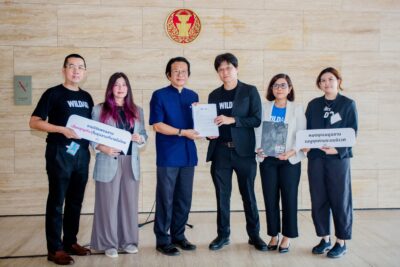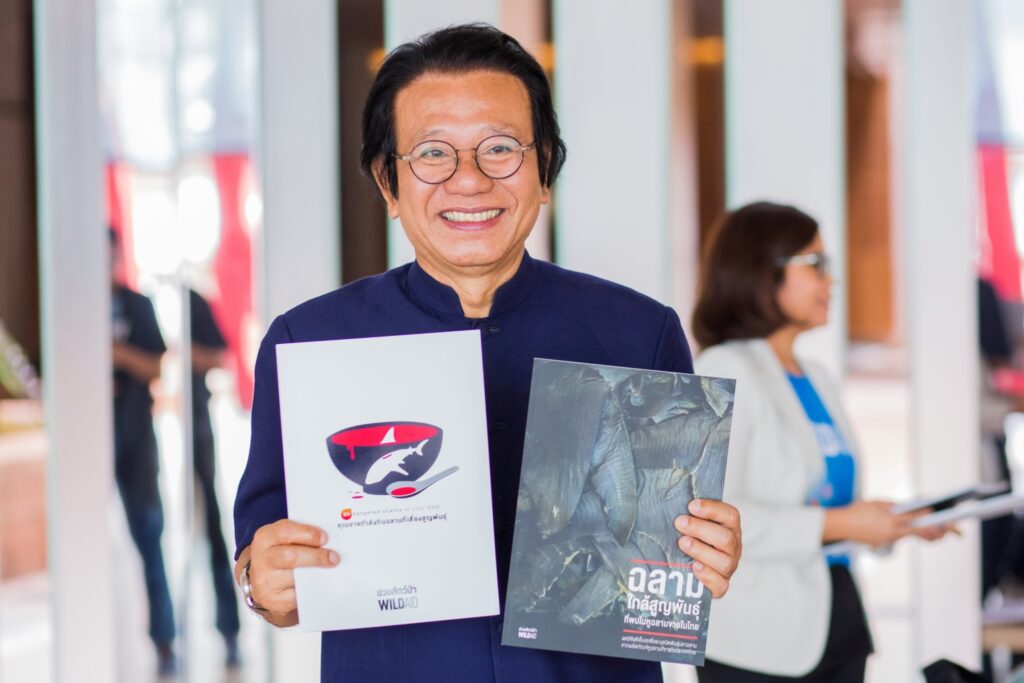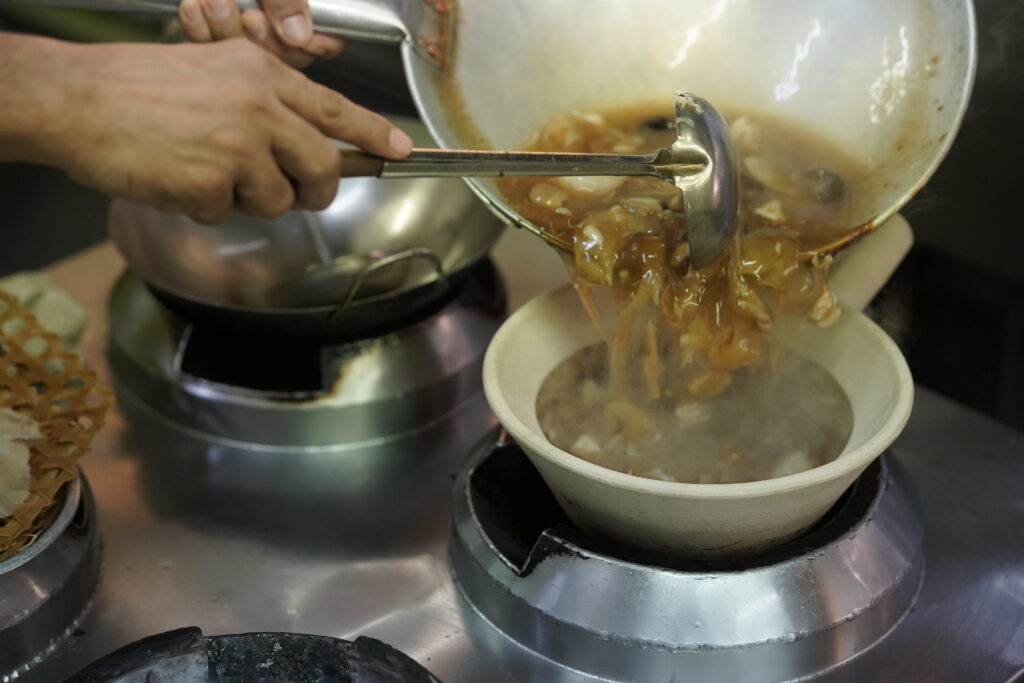
March 13, 2023 (Bangkok, Thailand) – WildAid and Love Wildlife Foundation submitted an open letter to the President of the National Assembly of Thailand to seek their urgent attention and action to cease serving and consuming shark fin at Parliament House and on celebratory occasions.
This call comes after Dr. Tossaporn Serirak, a Member of Parliament from Phrae Province and House of Representatives Chairman of the Standing Committee on Public Health, shared a public post on his personal Facebook page on February 29th with a photo of shark fin soup being ladled into a bowl. The post was accompanied by the text: “In the ocean there are sharks, in the parliament there are… Should the Parliament House serve shark fin soup to members of the parliament?”
Both WildAid and Love Wildlife Foundation, whose work is dedicated to reducing demand for sharks in Thailand, aim to raise awareness amongst Thailand’s Parliament about the harmful effects of consuming shark-based dishes and the critical role sharks play in marine ecosystems. The inclusion of shark fin on menus contributes to the decline of global shark populations and poses a significant threat to essential marine balance. Recent research revealed that the number of sharks killed by humans has increased from at least 76 million to 80 million sharks per year between 2012 and 2019; approximately 25 million, or around one-third, of those were threatened species. Governments in numerous major consumer countries, such as China, have taken a stand by prohibiting the serving of shark fin at official banquets for more than a decade, signaling a unified commitment to conservation.
A recent DNA study of shark fins traded in Thailand found that 62% of the identified fins belonged to sharks at risk of extinction. The results confirmed that consumers could be eating endangered sharks in their soup. Sharks are integral to the health of the ocean ecosystem, and their disappearance can cause the ecosystem to collapse, affecting fisheries, coral reefs, local communities, and coastal economies.


“Over the past six years since the launch of WildAid’s Celebrate with #NoSharkFin campaign, the general public has become increasingly aware that consuming shark fin and other dishes made from sharks are no longer sustainable food choices and are contributing to the imbalance of the ocean’s ecosystem. In recent years, Thailand has become a model example for protecting sharks. The Maya Shark Watch research project, which studies blacktip reef sharks in Maya Bay, Hat Noppharat-Thara Mu Ko Phi Phi National Park, has led to effective regulations for the management of tourism. We envision Thailand’s Parliament, as representatives of the Thai people, to lead as positive role models in protecting these keystone species that are critical to the oceans’ health and to support sustainable consumption that does not further threaten the environment,” said Dr. Petch Manopawitr, a conservation scientist and advisor to WildAid.
According to WildAid’s 2023 survey findings, Thais in urban areas predominantly consume shark fin in restaurants with their families; 57% said they consume shark fin at weddings, 46% at gatherings with friends in restaurants, and 42% at family reunions during Chinese New Year.


Despite a decline in shark fin consumption among urban Thais over the past six years, more than 56% still express an intention to consume shark fin in the future. This underscores Thailand’s continued significance as a key market for shark fin. Effective awareness campaigns, supported by the government and hospitality and tourism sectors, are crucial to enlighten consumers about the impact of shark consumption.
In December 2019, WildAid and a coalition of eight local and international NGOs submitted an open letter to the Thai government seeking their urgent attention and action on ending shark fin consumption at any state events. The call came after the government received heavy criticism from the public after local media reported that shark fin soup had been served at an official banquet on December 3rd, 2019. The former government did not respond to the letter.
Around the world, there has been a shift in policy toward ending the consumption of shark fin, including from governments in the world’s major consumer countries, such as China and Hong Kong. As for the private sector, Thai Airways and approximately 50 other airlines have banned the transport of shark fin, and at least 186 venues in Thailand, including hotel chains and restaurants, have been declared shark fin-free as part of the Fin Free Thailand initiative.
“We have seen shifts in policy toward ending the consumption of shark fin in many sectors around the world, including the private sector in Thailand. The Fin Free Thailand initiative that began in 2013 drew a lot of interest and backing from large hotel chains, supermarkets, and restaurants pledging to ban shark fin from their establishments—and they have kept their commitments. We sincerely urge Thailand’s Parliament to join other proactive governments who have already banned the serving of shark fin in their facilities and at banquets to support sustainable practices for the people and the environment,” said Nancy L. Gibson, Founder and Chief Executive of Love Wildlife Foundation.
This week, WildAid and Love Wildlife Foundation respectfully called upon the parliament house to demonstrate strong environmental stewardship and lead by example in holding celebrations without shark fins.
-###-
NOTE TO EDITORS:
Download media assets here.
For media inquiries, please contact:
Sippavit Vanasusri, Program and Communications Manager (Thailand)
sippavit@wildaid.org T: +66-86-606-5599
Nuthatai Chotechuang, Thailand Program Director
nuthatai@wildaid.org T: +66-81-818-9251
Stay in touch and get the latest WildAid updates.
SIGN UP